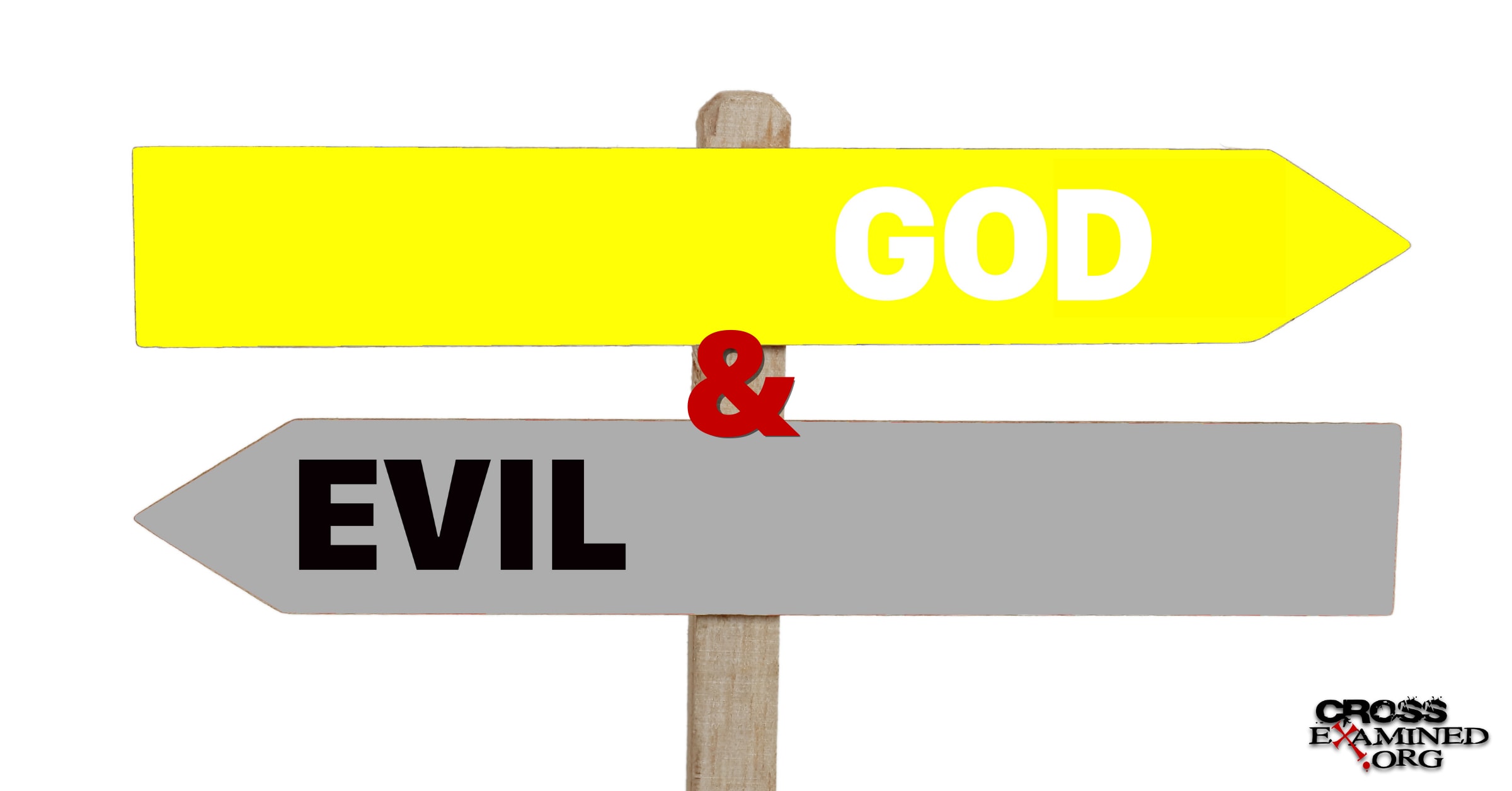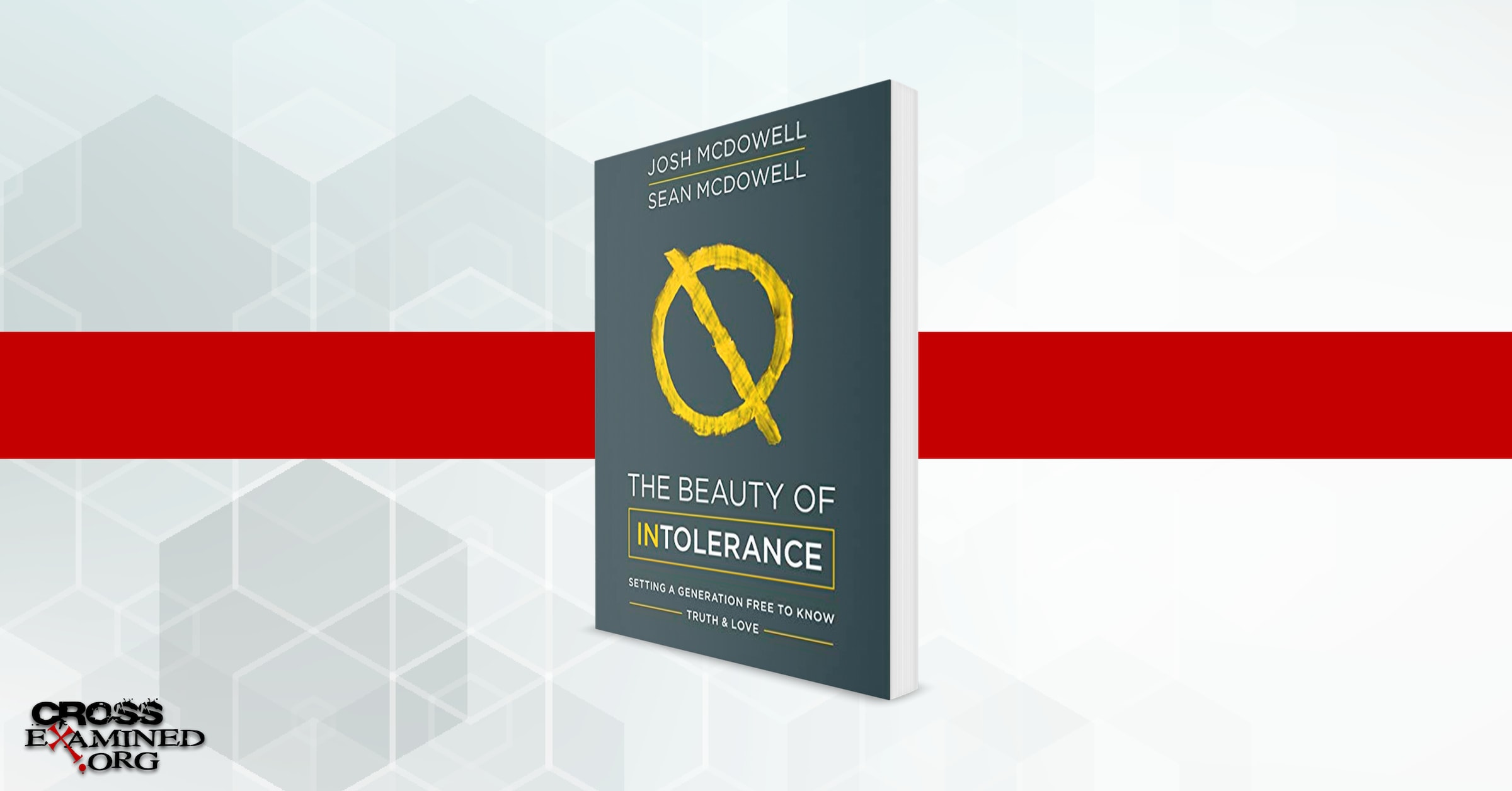By Jordan Apodaca
God is doing an awesome work around the world. He is calling His church back to the defense and proclamation of the Gospel and you get to be a part! If you’ve been Apologetics sites like this one for a while, my guess is that you have an itch. There is a deep yearning within your soul to take the apologetics knowledge you’ve accumulated and use it to minister to others.
“Yes, you’re quite right. But do I know enough?”
If you could give me a basic five-minute explanation of God’s existence, Jesus’ resurrection, and the problem of evil, and if you’re humble and willing to trust God for this journey, then you are ready. The world is dying because of “lack of knowledge” (see Hosea 4:6). You have that knowledge! You know the Gospel, and you know that it is true! The world and the church need that knowledge!
“But how in the world do I start?”
Well, let’s ask seven thinkers who are relatively new to the apologetic scene! These are all apologists who have begun young and thriving apologetics ministries. In this first post, we will meet the apologists and hear the stories of how God led them to begin their ministries, what that looked like, and what makes their ministries unique. In the next post, we’ll hear them share advice on a broad range of topics, from how to reach local churches to picking names to finding a niche. But first, let’s meet the “new apologists!”
Tim Stratton (Free Thinking Ministries)
Q: Who are you? How did you get into apologetics? And how did you decide to begin an apologetics ministry?
My name is Tim Stratton. I never really thought that much about apologetics until after being in full-time youth ministry for several years. This was because teenagers and college students were asking hard questions and raising tough objections against Christianity. I had no idea how to answer the good questions of many students. I tried ignoring them, then telling them to simply have more faith or “just believe harder.” This ultimately backfired and many of them left the church. Some lost their faith and became atheists.
God used this to spark something in me. I started listening to Dr. Craig’s Reasonable Faith podcasts every day. Sometimes I would listen to several episodes in one day. If I did not comprehend the topic I would listen to that episode over, and over, and over, and over – and over, and over again until it “clicked.” After completing all the podcasts I realized I needed more so I enrolled at Biola University and majored in Christian Apologetics in the MACA program.
I did not really decide to start an apologetics-based ministry. It just sort of happened. Or perhaps I should say, “God did it!” I was content to continue pastoring at my church in Nebraska and trying to influence students and others in the congregation by sprinkling my sermons with “apologetics goodness” (like a Tim Keller). But then, one day in early April (2015) I went to go meet with my tax guy. He was aware of the online presence I had via social media. He asked me if I had ever thought about starting an apologetics-based ministry. I thought something like that could never happen, but he asked me to do him a favor and dream about it and to also write up a proposed job description along with a mission and vision for what “Tim Stratton Ministries” might look like. I really thought this was a waste of time but I typed something out and brought it back to him a couple days later. To my surprise, two weeks later I was having breakfast with my tax guy (he is a CPA), a couple successful businessmen, a lawyer, two pastors from the area, and a couple profs from the local university. I sat back and listened to them discuss finances, 501c3 stuff, a website, and more. Then they turned to me and asked, “So, Tim, do you want the job?”
This still seems surreal to this day and I can only give credit to our sovereign God!
However, if I had to give any advice (and in a nutshell) I would point out that FreeThinking Ministries began to exist because God led me to be a forceful presence on Facebook and social media. I would constantly defend the faith of Christians — especially young Christians — whenever I saw the opportunity. Eventually parents started tagging me in threads in which atheists were attacking their kids. This online battle for the mind was noticed by many and eventually a few of these guys asked me to start a website as a resource. This eventually turned into FTM.
Q: What Else Should We Know About You?
My wife Tia, and I have one son Ethan who is currently a sophomore in High School (and a great wrestler). Besides theology and apologetics, I love to spend time with my family. I enjoy working out with my wife and doing mixed martial arts with his son. I used to compete professionally in martial arts and had a successful coaching career in MMA. I also was an accomplished bass player in several Christian rock bands and I continue to occasionally record as a studio musician. I have recently taken up competitive pistol shooting. I love watching football, basketball, superhero movies and Star Wars!
Q: What currently makes your ministry unique compared to other ministries? What is the focus of your ministry?
Probably the one thing that sets FreeThinking Ministries apart from all the other apologetics-based organizations is our heavy emphasis on libertarian freedom (commonly referred to as free will) and how Molinism (a view explaining God’s sovereignty and human freedom/responsibility) answers so many apologetics-related questions. FTM definitely discusses a plethora of other issues, but a majority of our content defends the truth of Christianity through the lens of Molinism.
Q: Did you know from the beginning what would make your ministry unique? Or did you figure it out on the go? Explain how you came to focus on what you focus on.
Answer: It was definitely “on the go” for me! I did know that I wanted to push what I refer to as the “Freethinking Argument Against Naturalism,” but I had no intentions of writing so much about Molinism. This was a byproduct, however, of advancing the Freethinking Argument because so many Christians who opposed the idea of libertarian free will attacked the Freethinking Argument which was aimed at atheists. I thought this was odd since the argument is against naturalism and eventually seeks to show that the biblical view of God is the best explanation of the free will possessed by humanity. I never thought that my fellow brothers and sisters in Christ would attack my argument more than atheists. To counter this unexpected problem I appealed to Molinism. In fact, I changed the focus of my PhD work from philosophy and metaphysics to systematic theology so that I could study Molinism in depth.
Q: How do I pick a name for my ministry? How important is having a good name?
See my above answer.
Yes, I think it is good to have a unique name. Some of the men who helped start my ministry really thought I should name it “Tim Stratton Ministries.” I felt that this was a bad idea for several reasons. The primary reason is that I hope FreeThinking Ministries becomes bigger than just one guy (this is also why I developed a team and love to post guest blogs).
Scott Olson (Free Thinking Ministries)
Q: Who are you? How did you get into apologetics? And how did you decide to begin an apologetics ministry?
My name is Scott Olson, and I’m the director of media content for Freethinking Ministries. I’m also one of the hosts of the Freethinking Podcast which I cohost with Tim Stratton. I was first introduced to apologetics when I was in junior high. We watched a series of videos called TrueU (at least I think that’s what it was called) by Dr. Stephen Meyer for Sunday School, and I was riveted by the arguments being made for theism. That curiosity continued into high school when I first read half of Dr. William Lane Craig’s book On Guard. I don’t entirely remember why I ended up not finishing that book at that point, but I do remember finally finishing it my sophomore year of college. From that moment on, I couldn’t stop talking and reading about apologetics and theology. I managed to get several of my friends into it, and we began meeting and studying the arguments and evidence together. I suppose I haven’t ever started an apologetics ministry, but Tim and I had become acquaintances through my brother and so when Tim reached out and asked if I’d like to help out, I jumped at the opportunity. I managed to convince Tim to do a podcast with me, and we’ve been going at that for awhile now.
Q: What Else Should We Know About You?
I’m fascinated by marketing, persuasion, and influence, and I think that’s an area where Christians could use a stronger focus. For that reason, I’ve been taking a bit of a break from any hardcore studying of apologetics and I’ve been focusing on how we as Christian apologists can better articulate the importance of doing strong apologetics within the church.
Q: What currently makes your ministry unique compared to other ministries? What is the focus of your ministry?
Answer: I would say our ministry is the most prolific in terms of its defense of libertarian free will. Tim is constantly writing on the subject, applying it to numerous apologetics and theological issues, as well as talking about it with me on the podcast.
Q: How do I pick a name? How did you pick your name for your ministry? Are you happy with the name? How important is having a good name?
Answer: This might come as a surprise, but I don’t think the name of your ministry is nearly as important as you might think. The number of people who will come to be familiar with your ministry as a result of your name is really not that many. What’s much more important is that you create valuable content, and that those who read your content truly believe in what you’re doing. Your audience sharing your content is what will contribute the most to your growth, so I wouldn’t fret too much about the name. I suppose some good advice might be to pick a name that accurately reflects the niche you’ve chosen. Spell out the solution to the problem you solve in your name if at all possible.
Matt Schmidt (Engage 360)
Q: Who are you? How did you get into apologetics? And how did you decide to begin an apologetics ministry?
My name is Matt Schmidt. I have an incredible wife and four young children. My wife and I moved to Charlotte, NC for me to attend Southern Evangelical Seminary and have ended up settling here for the foreseeable future.
I had a great family growing up, and my parents instilled a lot of really great values in us. We grew up in Nebraska and attended a conservative, mainline Lutheran Church until I was 12 or so. I always had a lot of questions and remember challenging the pastor even when I was younger. By the end of high school, I would have considered myself an atheist, though a fairly moral atheist, believing that science had enough answers that you did not need God. That combined with a comfortable middle-class life with loving parents, success in academics, success in sports, and a wide social circle created a situation with no existential need for God. For me it was just a matter of if it was true or not. That was it.
I had a lot of questions about how we got the Bible, whether science could prove that we don’t need God, and others. I did not find Christians that were able to answer any of these questions. To keep the story short, over a period of about three years early on in college, I went from atheism, to deism (though I did not know that word at the time), to theism (though I did not know the distinction from Deism), to Christianity, to actually understanding the Gospel. This was largely on my own. I heard the Gospel through the radio ministry of Alistair Begg and began listening to his show more regularly. One time I left it on after and hear R.C. Sproul’s Renewing your Mind. I was amazed and excited that there were other people (even Christians) asking and answering the kind of questions I had wrestled with for years on my own. I immediately became an apologetics junkie. I ended up also hearing Ravi Zacharias on the same channel and started purchasing books on a regular basis.
How I ended up starting an apologetics ministry is a bit of a complex story, so I will give a brief version. I entered seminary to study philosophy, theology, and apologetics. I did not have any clear intention of getting a “job” because of my degree. I just wanted to learn and be more prepared in my life, to serve whatever church we were a part of, and be more effective at sharing with others. A few years into my studies, I was asked to take over a local chapter of a new apologetics-based campus ministry that had started out of Southern Evangelical Seminary called Ratio Christi. I was then asked to join the National Team of Ratio Christi overseeing hiring and new chapter formation. After four years and overseeing close to 200 people coming into the organization, circumstances required that I had to take a new direction.
One conviction I had throughout much of my time in Ratio Christi was a frustration over the disconnect with the church and its integration of both apologetics and evangelism. Most of our chapters were doing great work with their students but churches were not interested for the most part, even in situations where the local directors were working to establish relationships. I had been thinking about how we could better serve the local church and how crucial they were to the long-term success of what we were doing in Campus Ministry with students who cycled out every few years. Once it was clear I was needing to change directions, more directly addressing the need of apologetics-evangelism in the local church was a very clear direction. I was immensely blessed with a large number of people whom I had been laboring alongside for several years who had this same conviction and Engage 360 went from an idea to an official para-church ministry quite quickly.
Q: What Else Should We Know About You?
I am an untrained entrepreneur at heart, and I love doing things as a team. True teamwork is immensely valuable, and it takes much more than having a group of people trying to do the same thing to have a team. A healthy team can emphasize everyone’s strengths and largely cover up each person’s weaknesses. I love taking on new challenges and figuring out how to solve them. I am very passionate about helping all Christians understand that they can be more effective at understanding and sharing their faith no matter what their individual gifts and abilities are.
Q: What currently makes your ministry unique compared to other ministries? What is the focus of your ministry?
As far as apologetics ministries go we are unique in our focus on hands-on, guided evangelism training by focusing on how to have spiritual conversations in everyday life. Our training is highly interactive and focused on modeling how to put the apologetics evangelism content into practice in everyday life. Relative to most Evangelism ministries, we are unique in our emphasis on not taking a one-size-fits-all approach but asking questions to learn who a person is and presenting Christianity and the Gospel in light of who that person is (which means a variety of other “methods” can be effective if used in the right way with the right person). Working with the same basic training concepts, we are offering three ways of accomplishing our vision of helping people have spiritual conversations in everyday life. First through hands-on church training, second through geographically based online communities, and third through University outreach events (which will combine church training and an online community with a multi-day outreach event on a University campus).
Q: Did you know from the beginning what would make your ministry unique? Or did you figure it out on the go? Explain how you came to focus on what you focus on.
I knew before we started that it was fairly unique in that most apologetics ministries to the church were focused on events, lectures, and conferences. These are really valuable, but we saw a gap in people actually applying what they learned in everyday life, so we zeroed in on that as our focus. Charlotte has no lack in apologetics-based training, but even with the churches that emphasized apologetics there was a disconnect between getting people to use their apologetics knowledge in everyday conversations. We wanted to try to focus on a very entry level approach that was something anyone could benefit from and use in their lives. We trust that those who begin the process with us will continue to grow and will most often get deeper into apologetics as time goes on. We are trying to offer a very practical, “entry level” onramp into apologetics evangelism.
Q: How do I pick a name? How did you pick your name for your ministry? Are you happy with the name? How important is having a good name?
That is a really hard one. I was stuck on a very descriptive name for our ministry that was way too long but it said what we were doing so well. My incredible wife rescued us and came up with the name Engage 360 as a way of summarizing: Engage the whole person, take them through a whole training process, that they can be effective in their whole life. It is helpful to have a simple descriptive word that can be used in many ways. Engage is becoming more of a buzz word and does a good job of saying what we are about in one word. It also can be used in different formats. For instance, our podcast will be called Engage Your World.
Cameron Bertuzzi (Capturing Christianity)
Q: Who are you? How did you get into apologetics? And how did you decide to begin an apologetics ministry?
Hi, I’m Cameron Bertuzzi. I’m a professional photographer and Christian apologist. I stumbled into apologetics back in 2012 when I learned that my brother had become an atheist. I worked through a period of doubt myself while attending Bible school a few years earlier, and figured, quite wrongly, that my brother’s doubts could easily be resolved. Boy was I wrong! His questions far outstripped what I was prepared to answer. After our initial conversation, I decided that I would get to the bottom of this. I wanted to know for myself whether Christianity could be rational. In my research, which has now spanned over the course of several years, I’ve discovered that Christian belief is entirely rational and that there are very good answers to the questions and objections he raised.
I started Capturing Christianity (CC) primarily as a place to blog and start practicing my writing. At the time, back in 2016, I didn’t think CC would grow beyond that. But 2 years later, the ministry has quite literally exploded–not just in our viewership, but in the kind of content we produce. We’ve moved beyond blog posts and now have a podcast, host live discussions between Christians and non-Christians, and film high quality interviews with professional philosophers and apologists. We have big plans for the future, too! God is good.
Q: What Else Should We Know About You?
You should probably know that I have a beautiful wife and two adorable children. Another fun fact: Cameron is my middle name. My full name is Richard Cameron Bertuzzi.
Q: What currently makes your ministry unique compared to other ministries? What is the focus of your ministry?
There are at least 5 things that make us unique. First, CC is unique aesthetically. All you’ve got to do is look at our website or watch any of our interviews to know what I’m talking about. My background in photography has set pretty high standards for the way we present our content. Second, CC is not all about Cameron Bertuzzi. There’s a term one of our board members came up with that I like: Platform Model. CC is really a platform to showcase the work of other thinking Christians. Third, our social media presence, at least on Facebook, is unparalleled. Our posts get commented on, shared, and liked more than ministries that have twice as many followers (as I’m writing this, we’re just now passing 7,000 likes). Check out our Facebook page to see what I mean. Fourth, our content is philosophically informed. Part of what’s great about having a platform model is that a lot of the content we produce comes from actual professionals. Even the stuff I write, I try to make it as informed as I can. Lastly, what makes Capturing Christianity unique is Cameron Bertuzzi. I don’t mean for that to sound haughty or arrogant, but that’s something that other ministries don’t have. In the same way, part of what makes Reasonable Faith unique is having William Lane Craig. God has gifted us each with unique abilities. It’s our job to take the talents and gifts that God has given us and creatively further the Kingdom (see the Parable of the Talents).
Our target market is Christians who are interested in apologetics. That sounds straightforward, but it’s actually pretty specific. On our website and in our podcast we typically mark the difficulty level for our content. The difficulty we produce most regularly is ‘intermediate.’ There’s a reason for that. Part of what it means to expose the intellectual side of Christian belief is to bring the very best ideas to light. It’s just a fact that many of those ideas are highly nuanced and complex. We do what we can to summarize, but what often happens is that the content ends up requiring some existing background knowledge in apologetics. And we’re okay with that. The ultimate goal is to expose the intellectual side of Christian belief.
Q: Did you know from the beginning what would make your ministry unique? Or did you figure it out on the go? Explain how you came to focus on what you focus on.
Answer: I knew from the beginning that our website would be pretty, but I did not know that social media would be our thing. If you can believe it, I wrestled with the idea of starting a Facebook page. I’ve started other pages in the past, I even have one for my personal photography page (Bertuzzi Photography), but none of them were very successful. CC is an enigma. It started out as a place where I would just share blog posts and do my best to get likes and shares. I used it solely as a marketing tool. But nowadays it’s a place to share ideas, start conversations, and even meme.
The platform model (mentioned in the previous question) is also something that came later. Not much later, but definitely later. As I said, CC started out as a blog for my own thoughts. Everything else we do developed organically.
Q: How do I pick a name? How did you pick your name for your ministry? Are you happy with the name? How important is having a good name?
Once I became comfortable with embracing my identity as a photographer, the name ‘Capturing Christianity’ soon followed. I knew that I didn’t want “Apologetics” in the name because most people have no idea what that means. That’s also the reason it’s not in our tagline (ie: Exposing the intellectual side of Christian belief.)
Selecting a name is important, but don’t spend too much time thinking about it. My wife and I have started several businesses over the course of our marriage that never panned out. Don’t get me wrong–we learned a lot from those experiences, but countless hours were spent thinking about what to name our business when what we should have been thinking about was how we were going to make it successful. Success in business has way more to do with discipline and execution than it does having a clever name (e.g., “Google”).
Travis Pelletier (Ratio Christi)
Q: Who are you? How did you get into apologetics? And how did you decide to begin an apologetics ministry?
My name is Travis Pelletier, I got into apologetics when I first read C.S. Lewis at 12 years old. I ended up rejecting my faith in College and regained it through a deeper study of apologetics. I decided to begin an apologetics ministry when I saw that my experience of doubt was very common, and that there was a huge need for apologetics Training.
Q: What Else Should We Know About You?
I’m married to a beautiful wife, and I have a 1 year-old son!
Q: What currently makes your ministry unique compared to other ministries? What is the focus of your ministry?
Our ministry is focused on reversing the trend in which Christian youth walk away from their faith in College. We do this by 1) Starting apologetics clubs on campus to discuss the evidence for and against the Christian faith, 2) Getting into high schools to prepare students before they get to college, and 3) Getting into churches to teach parents how to strengthen the faith of their children.
Jeremy Linn (Twin Cities Apologetics)
Q: Who are you? How did you get into apologetics? And how did you decide to begin an apologetics ministry?
I got into apologetics after a winter conference I went to with the organization Cru. At the conference they had a seminar based on the book Reason for God by Timothy Keller. I got interested in the arguments for God’s existence, as I grew up in an area where Christianity was always assumed to be true and those things weren’t discussed. Then I went into a “crisis of faith” mode a few months later after getting into online debates with Atheists, and started an investigation into the truth of Christianity.
I decided to start an Apologetics ministry after a friend who is passionate about Apologetics and I talked about the idea of starting an Apologetics group. That was it. But over time as conversations about it with others started to happen, the vision of the group expanded beyond anywhere we expected at the time.
Q: What Else Should We Know About You?
I went to UW-Green Bay for an undergrad and accounting. I work full time as an accountant right now along with co-leading the ministry, focused on the social media side of things. I also go to Bethel Seminary for their Christian Thought masters degree program.
Q: What currently makes your ministry unique compared to other ministries? What is the focus of your ministry?
We are the only ministry of its kind in the Twin Cities… and there are MANY Christian ministries here. What I mean is, we are the only ministry (outside the university) that provides training specifically for Apologetics to Christians in the area.
Q: Did you know from the beginning what would make your ministry unique? Or did you figure it out on the go? Explain how you came to focus on what you focus on.
In a sense we didn’t know what would make it unique, and thought it wouldn’t attract much interest. But then when we started talking to people about it, we realized it was something that wasn’t provided in our area, and people were seeking opportunities to be built up in Apologetics.
Q: How do I pick a name? How did you pick your name for your ministry? Are you happy with the name? How important is having a good name?
I gave some ideas for a name earlier. I picked the name after starting to brainstorm, writing down Twin Cities Apologetics, and pretty quickly realizing that nothing is going to top it. It came from the idea that there is a gap in the cities for Apologetics, so we are going to fill the gap with this ministry. I’m not extremely happy with the name because it doesn’t create too much appeal for our content for people outside the area. I start to question if we should have gone with a more general name, but then that brings me back to the idea that we would just be like any other apologetics ministry then. I can kind of go in circles that way. Having a name is one of the most important aspects of starting and growing the name. I mentioned Capturing Christianity earlier – one of the most successful Facebook pages out there. Much of that is because the name – It has alliteration. It is a play on words in light of the fact that the creator is a photographer. And it may appeal to people who don’t know what the word Apologetics means.
Matt Slama (Twin Cities Apologetics)
[He didn’t answer the first two questions; suffice it to say he is the other mastermind behind Twin Cities Apologetics.]
Q: What currently makes your ministry unique compared to other ministries? What is the focus of your ministry?
Perhaps we are not unique in format or structure. However, we are unique in the sense that we have decided to be a strong point of apologetics here in our own community, the Twin Cities. There is a huge need in today’s church to teach the defense of the Gospel. Talking with pastors here in the Twin Cities, it became very apparent that this is where we need to focus. Reaching outside of the Twin Cities would be an abandonment of our own community.
So, with that, we have 3 areas were we focus: building Christians up who need help with their faith, dialoguing with non-believers, and defending the faith against attacks here in our community.
Q: Did you know from the beginning what would make your ministry unique? Or did you figure it out on the go? Explain how you came to focus on what you focus on.
We never wanted to be unique. We saw the need that we needed to fill and decided on what was going to be the most effective. There is a vast amount of apologetic material online from trained philosophers. Jeremy and I are not trained philosophers. Fortunately, because those resources have been put together by great men and women of God, we don’t need to be. Taking those materials, we decided to train people up in sound doctrine and teaching. Looking at current science and also the philosophy of antiquity, we help people defend their faith and use that as a stepping stone for evangelism.
Jordan is a Christian, the husband of Tarah, an evangelist-apologist with Ratio Christi, a volunteer with Engage 360 and Reasonable Faith, and an aspiring philosopher studying at Southern Evangelical Seminary. His intellectual passions include the study of free will and the doctrine of heaven. His ministry passions are to share the love of the Gospel and to equip ordinary Christians to do the same. Other interests include sports (especially Ultimate Frisbee), time management, veganism, peanut butter, and personality theories.
Original Blog Source: http://bit.ly/2TBnQC3










